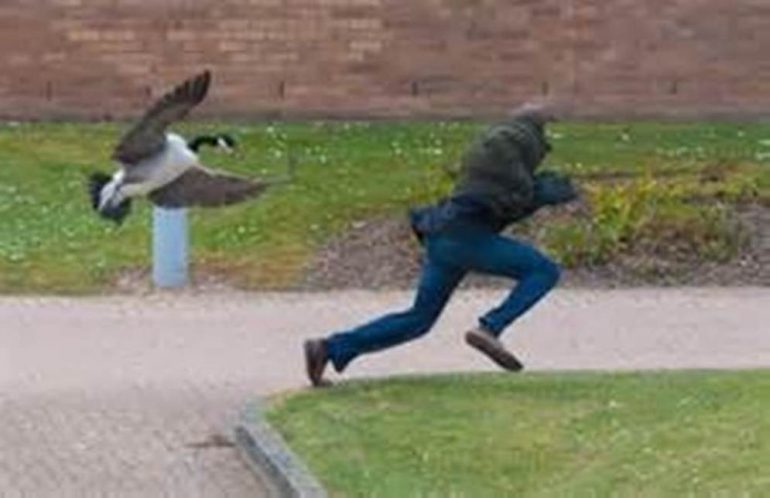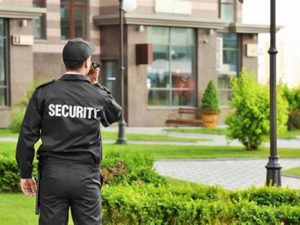
After retiring law enforcement I started a private investigations and physical security consulting business in my home state of Oregon. The security consulting portion of my business is varied and usually involves assessing security vulnerabilities, reviewing or developing security procedures, recommending specific security improvements, and providing security training.
Most of my clients are small to medium businesses but I am sometimes hired by individuals. Many of these people live in semi-rural areas adjacent to cities. They are often retired or commute into the city during the work week and tend to their “hobby farms” in the evenings and weekends. Typically their property has a barn of some sort, a few outbuildings, some farm machinery, and often has a couple horses, some chickens, and maybe a goat or two.
Security for these semi-rural areas is a growing concern. According to the FBI overall urban crime has been steadily decreasing nationwide but rural crime – especially property crime, is increasing. Trespassing, theft and burglary are major concerns for rural property owners and residents as sometimes crooks view these rural isolated areas as easy marks. These semi-rural areas also sometimes attract drug users who are looking for secluded spots to do their drugs and other assorted crooks.
The truth is, because of their relative isolation and the fact that many rural residents have not traditionally given much thought to security, many of these rural areas are easy marks for crooks. Fortunately, there are some basic and relatively inexpensive things residents and rural property owners can do to make themselves and their property more secure.
Practical Security Measures
After conducting a comprehensive security risk assessment I often recommend that rural property owners take steps to limit the number of roads and foot paths into the property. External lighting around susceptible areas is also a good idea with blue light often being more effective than regular illumination (see my article: A New Approach to Physical Security: Combining Blue Light and Music.) https://physicalsecurityonline.com/a-new-approach-to-physical-security-combining-blue-light-and-music/
With the evolution of security technology, effective alarm systems and GPS are becoming more cost effective. I often recommend perimeter alarms that can detect intruders at the earliest point of trespass. GPS devices hidden inside high-value property like tractors, trailers, and all terrain vehicles are also a good idea. While this may not prevent theft, it will greatly help in recovery of stolen property and maybe even aid in the apprehension of the perpetrators.
Animals for Security
In ancient times animals of almost every stripe have been used to help protect persons and property. Big cats, elephants, alligators, and even venomous snakes have been used to protect and secure property!
We all know about guard dogs. Throughout the world dogs are commonly used for security purposes. But have you heard of guard monkeys? Not many people in the United States keep monkeys but in India authorities used Langur monkeys to help secure the 2010 Commonwealth Games. These monkeys have aggressive personalities but they have excellent eyesight and are highly trainable. And, in recent times the U.S. Army even reportedly used rats to sniff out bombs!
Effective Security Can Sometimes be Very Basic
Sometimes I get real basic. On one occasion, as part of an overall security strategy, I recommended that the property owners buy a flock of geese. Yes, you read that right! They already had some chickens running around so adding a few geese would not be a big issue with feed or housing. And, a small gaggle of geese serves as a very effective “early-warning system.”
For a security consultant in today’s modern high-tech world to recommend geese as an early warning system might seem a little odd, but in a rural or semi-rural environment it makes simple and practical sense. Geese, like Swans, are very territorial and since ancient Roman times have been used for “watch guards.” They have an acute sense of smell and eyes that seem to see just about everything.
When anything – man or beast, enters their space they can get quite aggressive. They make a lot of noise and have been known to “attack” anything that enters “their space.” Simply stated, intruders do not like noise and commotion and will often flee when detected. If an intruder does not flee, the honking and commotion of a gaggle of agitated geese can alert a home owner who can then take immediate steps to protect themselves and repel the intruder (i.e., arm themselves, make sure house doors are all locked, turn on lights, etc.).
All physical security measures should be practical and cost effective
When deploying physical security measures there should be a balance of the probability of criminal activity against the cost to protect a certain target. For example, it makes no practical sense to spend a million dollars on a security system that protects something valued at a mere $50,000.
Layered security (also sometimes referred to as “concentric rings of security”) is a well established security strategy. Its basic premise is that before an intruder can reach a target, the intruder must overcome multiple layers of security (i.e., gates, locked doors, illuminated areas, alarm systems, and yes . . . even flocks of geese). Even in today’s modern high-tech world, low-tech security strategies augmented with high-tech, can often be an economical and effective way to protect persons and property. And, YES, animals like geese can sometimes be an important part of an overall security strategy.




